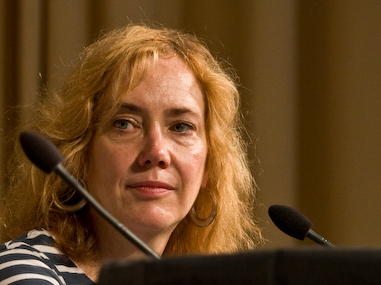Apocalypse Descending (2002)
Contexto: I've always had numinous dreams, and a lot of them feature a Dionysian character I named The Boy in the Tree. He first came to me when I was seventeen: I had a dream that I was on a flat featureless plane, mist everywhere. Then there was a blinding flash of lightning, deafening thunder, and I fell to the ground. Someone reached out to touch the middle of my forehead with a finger: I opened my eyes, the mist was gone, and there he was: the boy in the tree, this beautiful demonic figure with mocking green eyes. After that he would appear in dreams, sitting up in a tree and talking to me, and I'd have this incredible wave of emotion, a feeling I've only ever had in dreams — the most amazingly intense combination of desire and loss and anticipation. Later I'd think (still dreaming) This is what I will feel when I die. And who knows? Maybe I will.
Then, while researching Winterlong, I found a reference to Dionysios of Boeotia, where the god was called the One in the Tree. So even though I rationally know there's no such thing as a Dionsyian god, or a universal unconscious, it's very, very easy for me to extrapolate them both from my own dream-experience. The roots of these myths of the dying or vegetative god are so ancient and so many that one can wander among them forever, I think, yet never find a single source. And the primary material in Greece is so fascinating and so dark — The Bacchae, what we know of the Dionysian and Eleusinian Mysteries — great stuff for writers.
For me personally, of course, Dionysos embodies all the themes that have always preoccupied me: mutable sexual identity, altered states of consciousness; madness, the theater, ecstacy.
